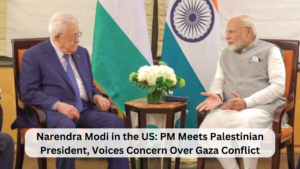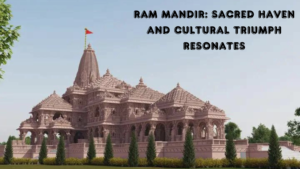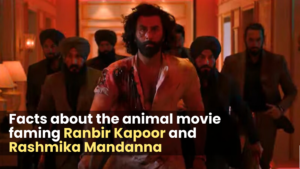Article 370: A Cinematic Journey Through Historical Reforms
Filmmakers have started their fair share of canvassing as voters get warmed up to the upcoming election season. Article 370 is the first out of the block. It is a convincing sarkari explanation of the government’s Kashmir policy, which resulted in the controversial constitutional provision being revoked on August 5, 2019.
Although these are recent occurrences that are still fresh in the public consciousness, the producers appear to be trying to reassure viewers about the reasons behind the termination of Jammu & Kashmir’s special status prior to the ruling party’s election. The movie is keen to portray it as a brilliant move, even though the decision’s long-term effects are still unknown.
Movie fame
In the midst of electronic news channel debates, director Aditya Suhas Jambhale skillfully connects the dots that frequently go unnoticed, akin to a sophisticated PowerPoint presentation with a pulsating background score. It doesn’t appear that the release’s timing is coincidental. Uri (2019), directed by Aditya Dhar, effectively dramatized the events leading up to the surgical strike against Pakistan following the 2016 Uri attack. That movie was released during an election year as well. In Article 370, Dhar is a co-writer and co-producer. Yami Gautam, a talented actor, plays the role of Zooni Haksar, the team’s intelligence officer. Zooni, a Pandit from Kashmir with personal grievances against the corrupt political leadership of the State, is well-positioned to propagate the narrative of “us versus them.”
The authors exploit historical occurrences to further the political narrative that the governing regime has established. Although the film does not address the lessons learned from the Bharatiya Janata Party’s coalition government with the Jammu & Kashmir People’s Democratic Party, it is clear that Jawaharlal Nehru’s alliance with Sheikh Abdullah was flawed.
Uri and Article 370
While Uri was free to become jingoistic, Jambhale avoids tonal exaggeration here because the subject warrants a little more subtlety. The movie deftly interweaves throughout the story how the tried-and-true strategies of bargaining with separatists and double agents in order to buy short-term peace in the Valley have become antiquated. More significantly, it discusses the terrorism and conflict economy industries in order to highlight the separatist movements and the local political leadership’s moral ambiguity. Although Delhi’s place in this matrix is not attempted to be seen, the story gains weight from the practical approach to problem solving.
However, in its attempt to demonize the Kashmiri leadership, the movie exposes a great deal about their former Delhi friends. It appears to those who choose to look that the current administration prioritized procedural expediency over constitutional ethics when it comes to the Kashmir dispute. And that its officers have the option to violate human rights. When Zooni’s senior officer asks her in a pivotal scene what she would have done differently following the Burhan Wani encounter, she responds that she would not have given the family of an alleged terrorist’s body back and eventually demonstrates that she was capable of doing so. We are left wondering if the land is more significant than the people. All of the discussion about making reservations
In particular, Yami internalizes a volatile character who is fighting to rescue her purpose from an unsatisfactory process. However, once the movie narrows down to a two-woman show, the proceedings get more straightforward and resemble the one-man armies that formerly populated Bollywood. Even in the dramatized portions, it appears that the creators wish to eschew the democratic ethos.
The film Article 370 is presently showing in theaters.
Read More: Anupama Co-Star Rituraj Singh’s Demise: Fond Farewell










